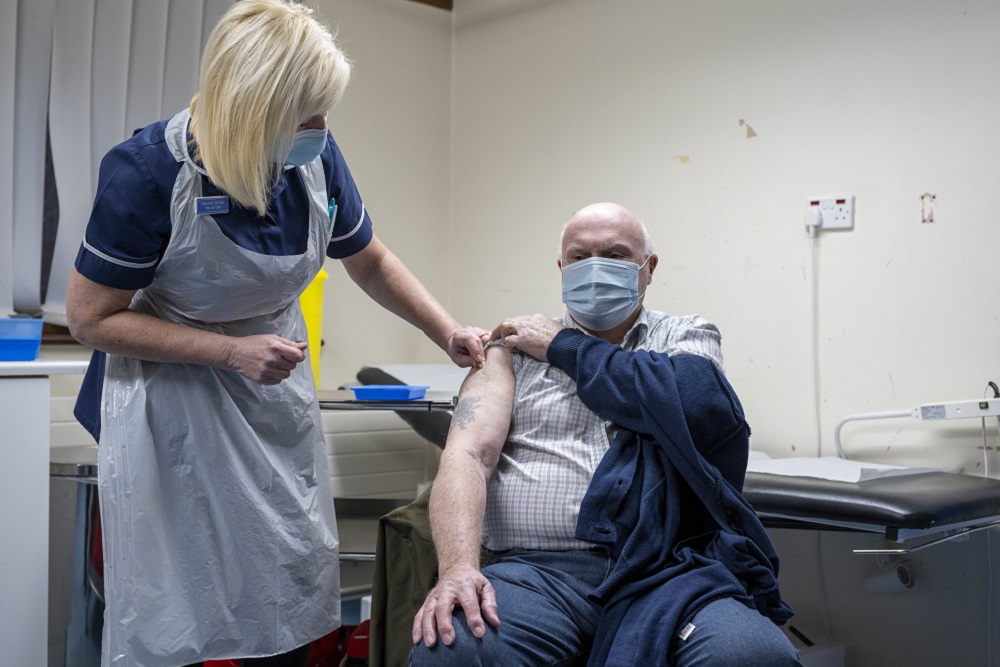‘Rare’ Covid jab side effects must not undermine vaccine role, inquiry told

Rare instances of vaccine side effects must not be used to “undermine the vital public health role that vaccination plays in keeping people safe from disease”, the UK Covid-19 Inquiry has heard.
A lack of trust in the government and scientists contributed to “false narratives” about the mass vaccination programme during the pandemic, according to Hugo Keith, lead counsel to the inquiry.
This low level of trust “appears to go hand in hand with high reliance on social media, high distrust about vaccine safety and high levels of vaccine hesitancy”, he added.
Public hearings for the fourth module of the Covid-19 inquiry started in London on Tuesday.
They will run until January 31 and will look at the issues relating to the development and rollout of vaccines in the UK, as well as barriers to uptake, confidence in the jabs, access issues and issues around vaccine safety.
Accounts
The probe will also explore if reforms to the UK vaccine damage payment scheme – which provides a one-off tax-free payment of £120,000 to those left disabled as a result of vaccines – are necessary.
During the hearing, the inquiry was shown a 15-minute video including accounts from a number of people who were affected by the vaccination programme, including those who suffered the rare and very rare side effects.
Before it was played, Mr Keith said: “I think in the public interest, it’s important that I seek to emphasise that the references in this video to the obvious and well-known fact that in very rare cases, vaccination has serious side effects, as indeed do all medicines, must not be used as a platform to seek to undermine the vital public health role that vaccination plays in keeping people safe from disease, or to try to seek to argue that at a population level, vaccination is not overwhelmingly beneficial.”
He emphasised the “rarity or often, the extreme rarity of the serious adverse effects that were suffered”, but added: “Nevertheless, they did occur, and for those who did suffer serious side effects, and even worse, the very small number of people whose loved ones died as a result, it was, of course, a complete tragedy, and nothing that can be said about the rarity of those terrible consequences can be taken, or should be taken, to diminish that loss.”
The inquiry will hear from representatives of bereaved families and vaccine injury groups on Wednesday, while Matt Hancock, who was health secretary from 2018 to June 2021, will give evidence on Thursday.
He will be followed by Professor Heidi Larson, an expert in vaccine hesitancy.
Citing Prof Larson’s statement, Mr Keith said there was a “gradual decline in trust” in the vaccines from April 2021 because of a number of issues, including inequalities and barriers created by a lack of information.
The statement suggests that “those who felt disconnected were then more likely to rely upon the word of mouth or social media” leading to “heightened exposure to misinformation” and fuelling “further mistrust and hesitancy”, Mr Keith said.
He added: “It’s not necessary to inquire into why such false narratives were created and promoted, but it is obvious that this was contributed to by low trust in the government, in scientists and medics, and that lack of trust appears to go hand in hand with high reliance on social media, high distrust about vaccine safety and high levels of vaccine hesitancy.”
Module four will focus on three vaccines in particular, which were rolled out in the period ending June 2022.
These are jabs developed by Pfizer Biontech, Moderna and AstraZeneca.
While the Novavax and the Sanofi GSK vaccines will not be part of the module, it will look at the circumstances surrounding the Covid-19 jab developed by Valneva.
“Not without controversy”
The UK had been due to receive 100 million doses of the French firm’s vaccine, but the Government cancelled the deal in September 2021.
Mr Keith said the “circumstances surrounding that termination are not without controversy”.
The inquiry will also look at other drugs used to treat Covid-19, including antivirals and anti-inflammatories.
It comes as the Covid-19 inquiry published its second Every Story Matters record, which is designed to assist chairwoman Baroness Heather Hallett in reaching conclusions and making recommendations on how to handle future pandemics.
The latest report includes thousands of people’s experiences with vaccines and therapeutics during the pandemic.
It recognises that the subject of Covid-19 vaccines is “an emotionally charged issue” for some people.
There were some who felt an “immense sense of relief” over the jab that could mean life potentially returning to normal, while others “remain concerned about how quickly it was developed and are still cautious, or even sceptical, about its benefits versus its risks”.
Some told the inquiry they felt they had been given little choice during the pandemic over whether or not to have the jab, and others said they felt there was not enough information on potential side effects.
And while some people told researchers they were glad they did not have it, others said they believe taking the vaccine caused them injury or significant side-effects.
UK Covid-19 Inquiry secretary Ben Connah said: “Every Story Matters is a vital part of the inquiry.
“Every Story Matters’ value lies in capturing the themes of all the experiences that have been shared with us, quoting people’s stories in their own words and, crucially, in ensuring people’s experiences are part of the inquiry’s public record.”
Support our Nation today
For the price of a cup of coffee a month you can help us create an independent, not-for-profit, national news service for the people of Wales, by the people of Wales.





